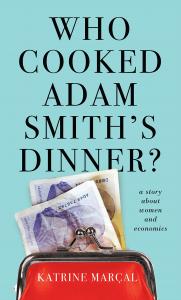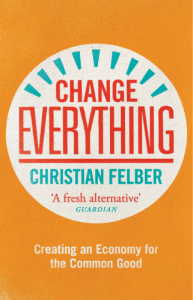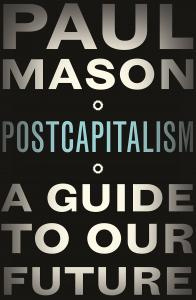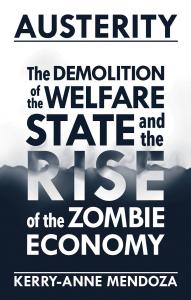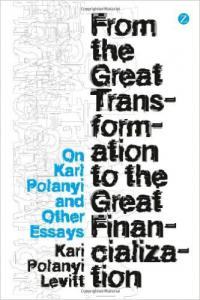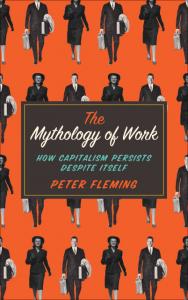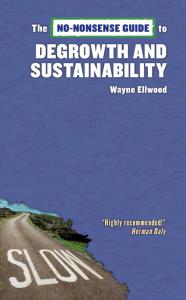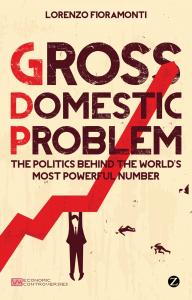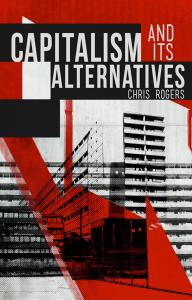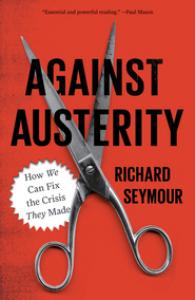What has a classical economist’s dinner, prepared by his mother centuries ago, got to do with the peace movement? Well, if you want to introduce someone to a different way of looking at the world – challenging unspoken, yet dominant , assumptions about how we should live together in peace on this planet – then this little book would make an excellent gift.
Pithy and fact-filled, it’s a tale of the dominance of ‘economic man’, with Swedish author Katrine Marçal taking the reader on…
Economics
When the Icelanders heard that their leader socked away money in an off-shore account in the Virgin Islands, 10,000 of them packed Parliament Square in Reykjavik on 4 April to demand his resignation. That’s partly because prime minister Sigmundur Davíð Gunnlaugsson had been urging his people for years to show…
2016 may be a big year for the Basic Income, a universal, unconditional, guaranteed income, regardless of people’s availability for work or other income.
There’s to be a national Basic Income referendum in Switzerland in November. Last year, the Swiss parliament overwhelmingly recommended a ‘no’ vote in the referendum.
Despite this, one poll showed 49…
As Karl Polanyi described in his book The Great Transformation, the last few hundred years have seen a constant and conscious drive to create a completely marketised economy, based on 'economic man': citizens whose motivations are completely those of self-interest, expressed entirely through the monetised economy.
While market enthusiasts believe (and enthuse) that markets and economic ‘man’ are based on natural laws, it is obvious that reality doesn't conform to their…
In a sense this book picks up from where my last review left off. But whereas Kerry Ann Mendoza’s Austerity (PN 2586–2587) explores the history, politics and impact of the current cuts programme, Mason is interested mainly in the economy.
Section one outlines the failures of neo-liberalism, providing an excellent introduction to basic economics…
Every now and then, Peace News sends me a book which I absolutely love from start to finish. Despite the clunky title, this is one of those books. It’s a terrific read that tells you everything you need to know about why austerity is prevalent, what it does and some pointers on how to resist it.
The book is in two parts: the first, ‘Demolition’, deals with the causes of austerity and its impact on all areas of society. The second, ‘Austerity and Democracy’, charts its…
Karl Polanyi’s The Great Transformation was one of the most significant economics books of the 20th century.
Polanyi was an Austrian-born historian and economist who mixed in Viennese intellectual circles with the founders of neoliberalism, Ludvig von Mises and Fredrich Hayek. But Polanyi was a lifelong critic of his neoliberal contemporaries and, in The Great Transformation, he sought to show how markets are neither natural nor inevitable, but instead have been…
Capitalism is often thought of as driven by elites bent on attacking the lower classes. The enemy is clearly defined, the targets obvious. All we need to do is redistribute wealth and minimise their control.
In this lively if unhelpful book, Peter Fleming subscribes to this view wholesale, discussing ‘the palpable hatred that the neoliberal state apparatus has for most working people’, treating them ‘as if they are an “enemy within” requiring constant harassment and purging’.…
Make no mistake, this is not a guide to degrowth and sustainability. It is instead yet another description of the perils of the growth model – but still well worth reading on that basis.
Compact and directly written, it will be an enjoyable, rewarding, and fact-filled read for anyone concerned with the environment, the quality of our lives, and our current economic disparities.
In the first six chapters, Ellwood analyses capitalism, and why growth is not just a goal of…
This small and accessible book describes how gross domestic product (GDP) became the world’s leading economic indicator and how its use deforms the political landscape, encouraging economists to focus on growth where previously they had been more concerned with describing the state of the economy as they found it.
As Fioramonti shows, our slavish attention to the annual GDP number has changed the ways in which we think about our world. GDP takes no account of things we produce but…
This book presents a compelling argument for exploring the ‘million and one ways’ of resisting capitalism.
It also provides a timely background to the recent economic crisis and the suffering caused by neoliberalism and austerity measures, and directly challenges the rhetoric of those who say that capitalism is inevitable. Indirectly, it provides the narrative behind the Occupy movement and the populist movements of Greece and Spain.
In his central argument, Rogers…
On 20 September, the British Campaign against Climate Change Trade Union Group launched a revised, expanded and updated edition of its excellent One Million Climate Jobs booklet at an ‘International Fight for Climate Jobs’ conference.
Speakers at the launch event included Kjersti Bartos, vice-president of the Norwegian Confederation of Trade Unions, Fernando Losado from the US Nursing Union, and Philip Pearson, the TUC’s senior officer for energy and climate change. There…
Richard Seymour, founder of the popular Lenin’s Tomb blog and regular contributor to the Guardian, is one of the smartest, sharpest Leftist intellectuals working in the UK today. After writing books critiquing liberal imperialism, David Cameron and Christopher Hitchens, he has now turned his attention to the 2008 financial crisis and the British government’s austerity agenda.
Seymour’s central concern is that the Left has ‘nothing to show’ for itself after four years of a…
Parecomic: The Story of Michael Albert and Participatory Economics is a clear, thoughtful and compelling introduction to some of the most challenging ideas around, and to an inspiring life of radical construction. After leading revolutionary student activism in the top scientific university in the US, MIT (the sanctuary described above had a huge impact), Michael Albert was…
British artist Peter Kennard responded to the G8 summit in the north of Ireland with a series of protest posters that he encouraged people to download and paste up wherever they saw fit – this poster was in Hackney. Some posters were stuck on the walls of
A group named Stop G8 occupied a former police station on Beak St in central London to be the convergence centre for their ‘Carnival Against Capitalism’.
On 11 June, 100 police officers broke into the building, removing…


